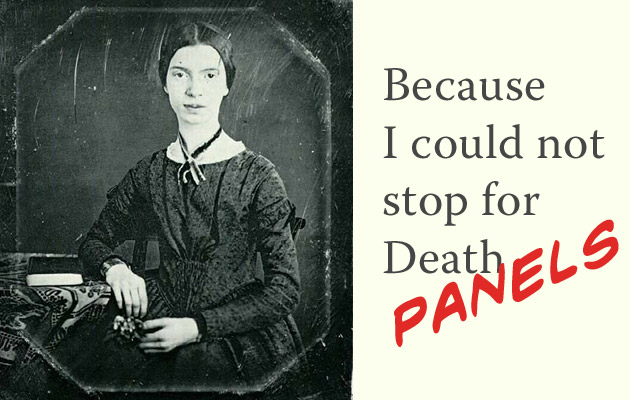We asked a range of authors and creative types to name books that bring solace or understanding in this age of rancor. More than two dozen responded. Here are picks from the Pulitzer Prize-winning poet Tracy K. Smith.

Latest book: Ordinary Light: A Memoir
Also known for: Life on Mars
Reading recommendations: Poetry helps me contend with the smallness of spirit—the greed, the dishonesty, the disregard for the lives of others—at the root of American politics. When I feel beaten down by all of the wrongheadedness, I turn to the wisdom, on what often feels like a cosmic scale, running through The Collected Poems of Lucille Clifton 1965-2010. Clifton was one of America’s great poets, whose work throughout her lifetime was committed to chronicling and celebrating black lives. The honesty, joy, wisdom, and hope she brought to this task is regenerative. For years, I’ve been completely captivated by a poem cycle—”the message from the Ones (received in the late 70s)”—that appears in her 2004 collection, Mercy. What is the message? One we and our elected leaders need desperately to hear and to heed:
in the geometry
of knowing
we have no new thing
to tell
only the same old
almanac
January
love one another
February
whatever you sow
you will reap
Marie Howe’s The Kingdom of Ordinary Time is a slim monument, in which the poet wrestles with what it means to be an American in an “ordinary” time rife with war, materialism, injustice. Howe also urges us to consider the ways that our unmiraculous lives are run through with glimpses of the infinite, as in the poem “World”:
I couldn’t tell which stars were which or how far away any of one of them was,
or which were still burning or not—their light moving through space like a
long
late train—and I’ve lived on this earth so long—50 winters, 50 springs and
summers,
and all this time stars in the sky—in daylight
when I couldn’t see them, and at night when, most nights, I didn’t look.
I also take heart in young poets whose work helps to bring faraway lives into focus, erasing the distance that news reports and foreign policy try to insist is too wide to cross. Solmaz Sharif’s debut collection, Look, explores photos and personal effects of individuals touched by war—and it calls attention to the ways that official language has been employed in ways designed to deaden it (and us) of human feeling. “Personal Effects,” a 31-page poem for the poet’s uncle killed in the Iran-Iraq War, elegizes the lost and contrasts a living, feeling sense language, against terms drawn from the Department of Defense Dictionary of Military and Associated Terms, which are set off in all caps:
Daily I sit
with the language
they’ve made
of our language
to NEUTRALIZE
the CAPABILITY of LOW DOLLAR VALUE ITEMS
like you.
You are what is referred to as
a “CASUALTY.” Unclear whether
from a CATALYTIC or FRONTAL ATTACK, unclear
the final time you were addressed
thou, beloved. It was for us a
CATASTROPHIC EVENT.
There is something mighty, and mightily sustaining, about voices like these, attuned—as little else seems these days to be—to the large, the permanent, the generous, and the humane.
Illustration by Allegra Lockstadt
_______
The complete series: Daniel Alarcón, Kwame Alexander, Margaret Atwood, W. Kamau Bell, Ana Castillo, Jeff Chang, T Cooper, Michael Eric Dyson, Dave Eggers, Reza Farazmand, William Gibson, Mohsin Hamid, Piper Kerman, Phil Klay, Alex Kotlowitz, Bill McKibben, Rabbi Jack Moline, Siddhartha Mukherjee, Peggy Orenstein, Wendy C. Ortiz, Darryl Pinckney, Joe Romm, Karen Russell, George Saunders, Tracy K. Smith, Ayelet Waldman, Jesmyn Ward, and Gene Luen Yang.
















